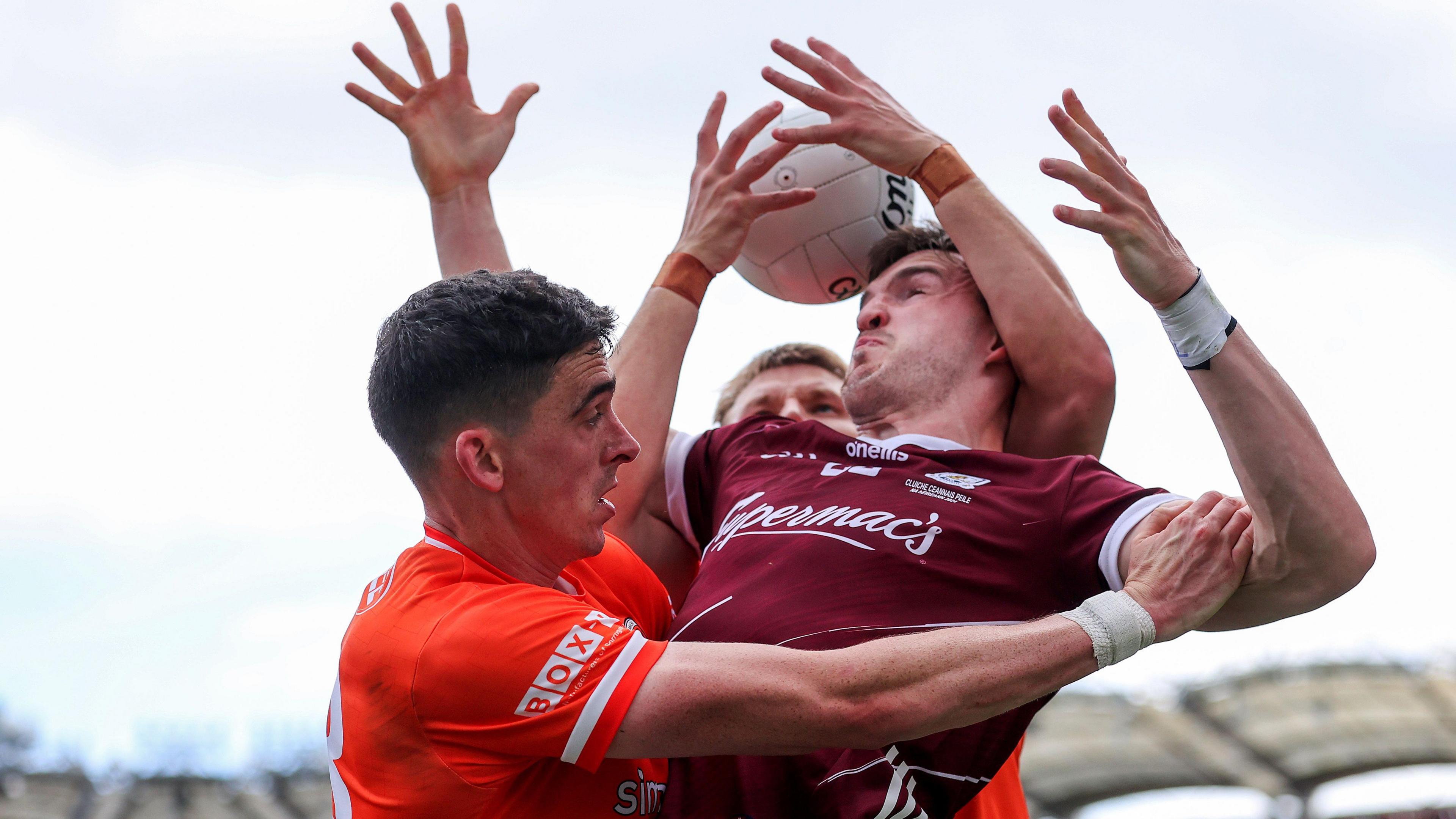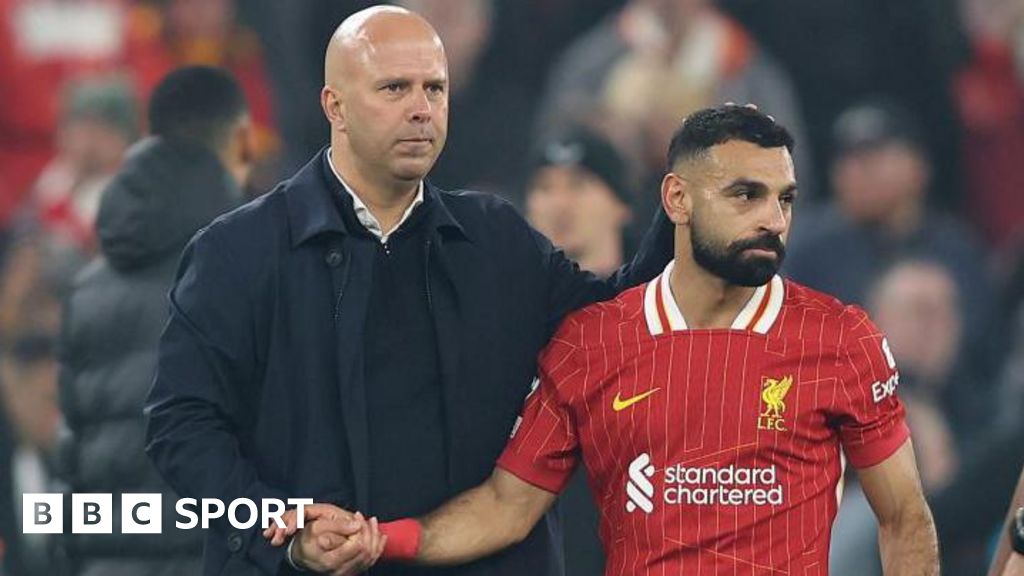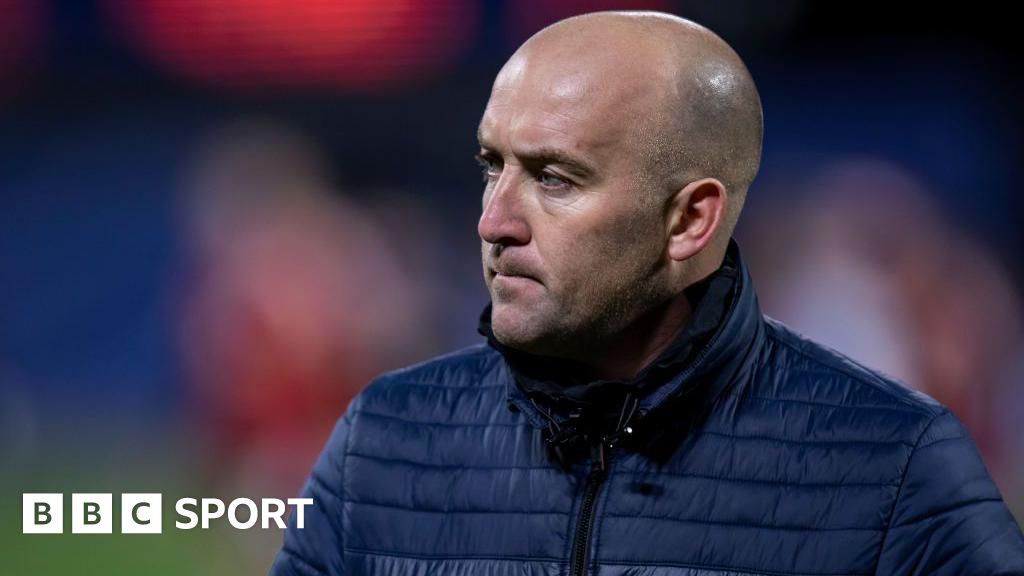ARTICLE AD BOX
 Image source, Inpho
Image source, Inpho
With their All-Ireland celebrations still going on, Armagh fans may not be too excited by the Football Review Committee's proposal but there has been a groundswell of opinion that change is required
John Haughey
BBC Sport NI Journalist
The GAA's latest tinkering with its football rules will be trialled later this month when the Interprovincial Series makes a return for the first time since 2016 with two semi-finals and a final to be played at Croke Park on 18-19 October.
The rules changes - which at this stage are proposed - have been devised following a lengthy consultative process led by the chairman of the GAA's Football Review Committee, Dublin's six-time All-Ireland winning manager Jim Gavin.
Gavin's committee has come up with what appear to be significant rules changes after meeting on no less than 31 occasions in addition to talking all the relevant stakeholders in gaelic football and also after setting up an online mechanism which allowed the GAA public to have an input.
As alluded to above, it's far from the first occasion that the GAA made moves to rewrite the rulebook but these proposed changes look far reaching given the lengthy list of alterations produced by Gavin's committee.
Following the official trialling of the new rules at the Interprovincial competition, a GAA Special Congress on 30 November should see the rules put in place for 2025 with a full review then taking place late next year with a view to the adoption of them in an updated rulebook from 1 January, 2026.
When are the games?
Leinster will face Connacht in the first inter-pro semi-final at 18:00 BST on 18 October, followed by Munster v Ulster at 20:00.
The following day, the two defeated semi-finalists meet at 17:30 before the final at 19:30.
Galway boss Padraic Joyce has been named as Connacht manager with ex-Westmeath boss Dessie Dolan taking charge of Leinster.
Cork's John Cleary is the Munster boss while Fermanagh manager Kieran Donnelly will lead the Ulster team.
Why now?
Armagh fans, still exultant following their All-Ireland triumph, are unlikely to be overly excited by the prospect of a series of new football rules and their manager Kieran McGeeney has on numerous occasions made clear his opinion that gaelic football has never been in a better condition than it currently is.
But be that as it may, there nevertheless has been a groundswell of opinion that the safety-first option of managers pulling the majority of their players, in some cases en masse, behind the ball has severely affected the entertainment value of gaelic football in recent times.
As hurling has become the poster boy of the GAA in recent years, in contrast football has morphed into a problem child for many hitherto passionate watchers amid the preponderance of a no-risk, short-passing, possession-based game.
Anybody connected with the GAA knows people thoroughly disenchanted with the modern game, which in some cases has led them to almost give up on gaelic football, as they hark back to what they view as the glory days of 'catch and kick'.
Thus we have the context of the committee's proposals
Image source, Inpho
Image caption,The Football Review Committee, led by former Dublin manager Jim Gavin, have come up with proposals for significant change to the game's rules
How many changes are proposed?
In a preparation at Croke Park last month, Jim Gavin spoke of "seven core enhancements" although there are a number of additional proposals also being looked there.
Therefore this appears a significant body of work in comparison to the relative tinkering of previous rules changes.
What are the standout changes?
The proposed change that really catches the eyes is the one that will reward long-range shooting with scores from outside a newly constituted 40-metre arc - bar converted 45s - which go over the bar being worth two points as opposed to one. In addition, goals would be worth four points.
Another big one would see an end to short kickouts with goalkeepers having to go beyond the 40-metre. Opposition players interfering with kickouts - which include intercepting kickouts within the 40-metre arc - would result in the ball being brought forward 50 metres and a free being awarded.
The committee's attempts to encourage attacking play has also seen it propose that teams should always have a minimum of three players inside both 65-yard lines. Thus managers wouldn't be able to pull everybody behind the ball when the opposition have possession.
Gavin and his committee members have also reacted to the emergence of 'fly' goalkeepers by coming up with a proposal where outfield players will only be permitted to pass to the keeper if they are both inside the large rectangle - or if the goalkeeper has advanced beyond their own 65-yard line.
Image source, Inpho
Image caption,Additional proposals include only two players being allowed to compete for possession during the throw-ins
The other proposals
The other proposals include the throw-in to both halves being reduced to a one v one contest as opposed to the current scrap for possession by four players which quickly accumulates other personnel.
A 'solo and go' rule is also being suggested which will permit a player who has been fouled to immediate go on a solo run as opposed to pausing for his side to take a free. This would also allow the player who has been fouled to immediately throw the ball to a team-mate who could 'solo and go'.
Tweaks to the current advanced mark will enable players cleanly fielding the ball inside the 20-metre line to continue on in an attempt to score from play, but with the ball being brought back for the mark if no score accrues. The thinking behind this rule is aimed at incentivising teams to kick long into the forwards.
Also under consideration
The committee has also been working on additional proposals which it believes would further embolden the 'seven core enhancements'.
Tactical fouling, such as preventing free-kicks being taken quickly, would result in the ball being move forward a whopping 50 metres as opposed to the current 20, with player dissent following refereeing decisions being similarly punished.
What's being described as "aggressive dissent" from the dugouts or sideline would also result in a 13-metre free being awarded against that team.
It's also proposed that black cards would be given to any players deemed to have contributed to a melee, unless they were attempting to remove a player from the melee, while any head to head contact, whether intentional or unintentional, would be a red-card offence.
The additional proposals include increasing the amount of substitutions from five to six plus the introduction of a stop clock, which has been in use in women's gaelic football for some time.
The committee is still deliberating whether the hooter sounding would conclude the game or whether the team in possession would be allowed to carry on until the ball goes dead.

 1 month ago
8
1 month ago
8








 English (US)
English (US)